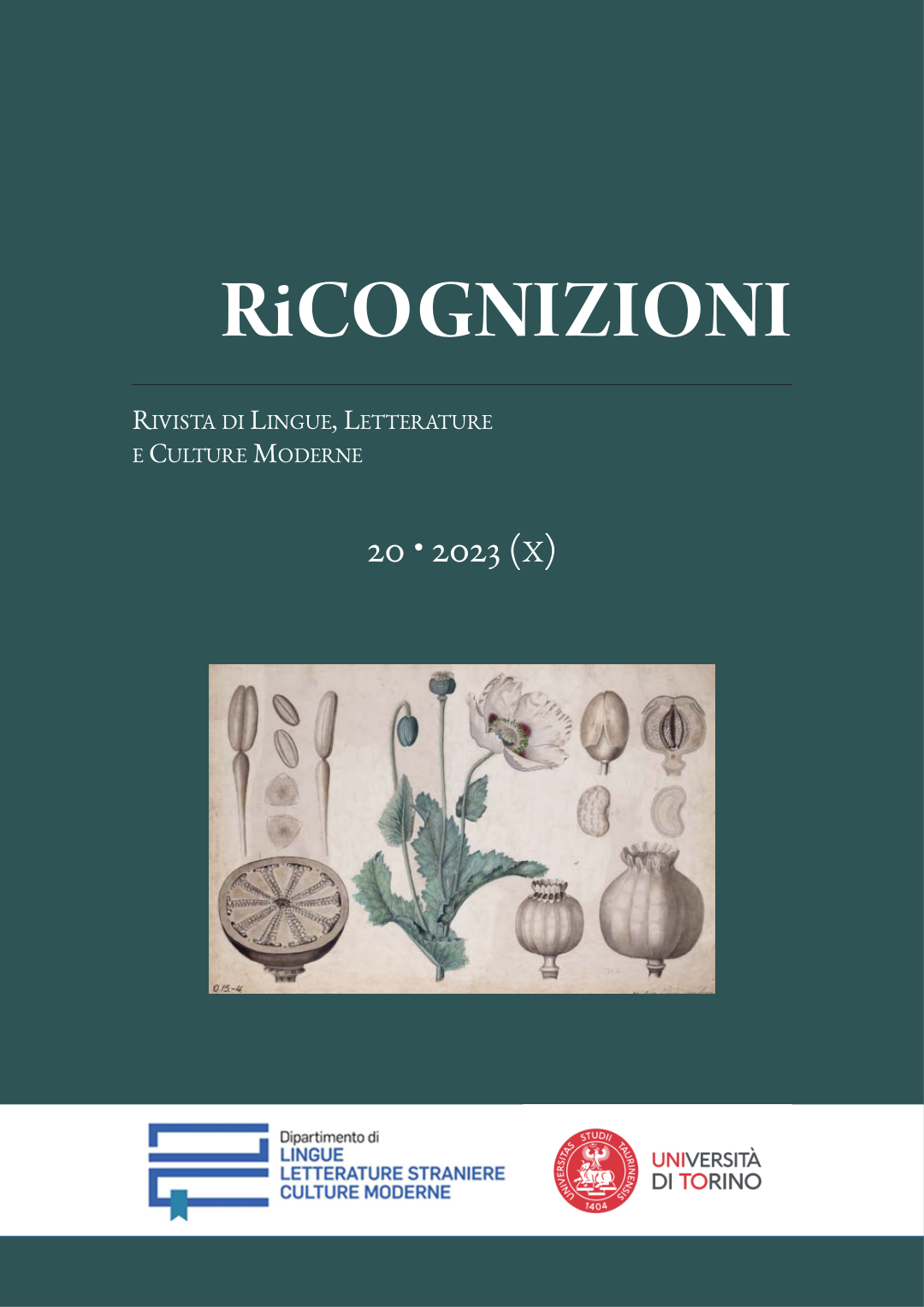"In Nature's Dress." The Anthropocene, Talking Nature and the Poetry of Margaret Cavendish
DOI:
https://doi.org/10.13135/2384-8987/8414Keywords:
Anthropocene, English literature, Poetry, Science, Seventeenth CenturyAbstract
This paper examines a selection of poems on nature by Margaret Cavendish, an English poet and natural philosopher active in the mid-seventeenth century. Cavendish’s conception of nature was “organicist”, meaning that all creatures – humans, animals and plants alike – share similar abilities in terms of feeling and reasoning. In this essay, Cavendish’s organicism will be discussed as the philosophical framework of her collection Poems, and Fancies (1653), especially those poems in which beasts, plants or nature herself engage in dialogue with human beings about their relationship with the environment. It will be argued that Cavendish’s choice to give voice to nature works as a fictional strategy to help readers imagine an alternative idea of nature, one different to that of nature as resource that was becoming increasingly widespread with the advent of early modern science. In the final section, it will finally be suggested that reading Cavendish’s poetry through the lens of post-humanism can contribute to present-day discussions on the Anthropocene.
Downloads
Published
How to Cite
Issue
Section
License
RiCognizioni is published under a Creative Commons Attribution 4.0 International License.
With the licence CC-BY, authors retain the copyright, allowing anyone to download, reuse, re-print, modify, distribute and/or copy their contribution. The work must be properly attributed to its author.
It is not necessary to ask further permissions both to author or journal board.








